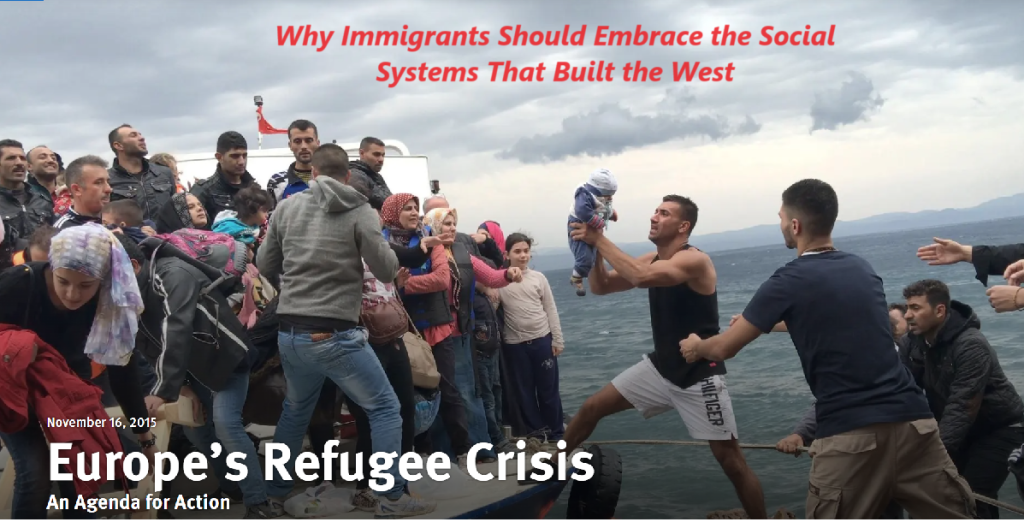The causes for immigration, as touted by The Misery Merchants and The Lords of Poverty (also known as UN, IMF and such organizations), are oversimplified narratives designed to maximize the amount of tax money they receive from western countries. They miss the mark on the deeper, more impactful reasons behind our journeys. Personally, my decision to migrate to Canada wasn’t about escaping hardship alone. It was about seeking out the robust systems and processes that make a society thrive—those invisible yet powerful mechanisms that shape a community’s success and resilience.

As an immigrant navigating a new life in a Eurocentric country, it’s natural to cling to the familiar practices and customs of your homeland. However, the stark differences between developing countries and Eurocentric nations are not just geographical or economic—they stem from deeply entrenched social systems and processes that drive societal progress. Embracing these systems can significantly enhance your experience and opportunities in your new home.
Understanding the Foundations

Michael O’Sullivan, in his book “The Levelling: What’s Next After Globalization,” emphasizes that the success of Eurocentric countries is largely due to the robust systems they have implemented. These systems ensure a level playing field, promote transparency, and facilitate efficient governance. By incorporating such systems into our daily lives, we can contribute to a society that thrives on collective progress rather than individual gain.

Similarly, John J. Mearsheimer in “The Great Delusion: Liberal Dreams and International Realities,” discusses how liberal democratic values underpin the success of Western nations. These values foster an environment where honesty, accountability, and the common good are paramount. Adopting these principles can help immigrants integrate more smoothly into their new societies.
The Role of Honesty and Integrity
One of the cornerstones of Eurocentric systems is honesty. It’s said that honesty is the best policy, and this couldn’t be truer in these societies. The transparency and trust that come from honesty not only build personal credibility but also strengthen societal bonds. Jordan B. Peterson, a renowned psychologist, often speaks about the importance of truth in his works. He argues that by being honest, individuals contribute to the stability and trust within a society, making it more resilient and prosperous.
Prioritizing the Common Good
In many developing countries, there’s a cultural emphasis on prioritizing the welfare of family and friends. While this is noble, it sometimes comes at the expense of the wider society. Kishore Mahbubani, in his writings, points out that the success of Western nations is largely due to their focus on the common good. Policies and practices that benefit the majority often take precedence over those that benefit a select few. By shifting our focus from individual or familial gain to societal welfare, we can contribute to creating a more equitable and prosperous community.
Embracing New Systems
To thrive in a Eurocentric country, it’s crucial to adopt and respect the systems in place. This means adhering to laws and regulations, participating in civic duties, and embracing practices that may be different from those back home but are designed to maintain order and fairness.
- Legal Systems: Understanding and respecting the legal framework is essential. This includes everything from following traffic rules and city by-laws to understanding your rights and responsibilities as a resident or citizen.
- Educational Systems: Invest in education not only as a means of personal advancement but as a way to contribute to societal progress. Education in Eurocentric countries often emphasizes critical thinking and innovation, skills that are invaluable in today’s global economy.
- Healthcare Systems: Engage actively with the healthcare system, which emphasizes principles of accessibility and preventative care. These principles are designed to ensure that everyone has the opportunity to lead a healthy life. It’s important to recognize, however, that resources to provide this service are finite and must be used wisely to maintain the system’s sustainability.
- Welfare Systems: Utilize the welfare systems responsibly, which are designed to provide support in times of need. It’s crucial to avoid any form of cheating or exploitation, as these systems rely on honesty and integrity to function effectively and sustainably. Misuse of these resources not only undermines the system but also diminishes trust and support for those who genuinely need assistance.
By embracing these systems, immigrants can integrate more smoothly into their new communities and contribute positively to the social fabric of their new homes.
Moving Forward Together
Immigrating to a Eurocentric country is an opportunity to start anew, not just for yourself but for your future generations. By adopting the systems and values that have made these countries successful, you can pave the way for a better future. As the saying goes, “When in Rome, do as the Romans do.” Embrace the systems, participate actively in your new community, and work towards the common good.
By adopting these Eurocentric systems and values, immigrants can not only improve their own lives but also contribute to the continued success and progress of their new homes.
Together, we can build a society that is just, prosperous, and inclusive.
The Greatest Gift We Can Give
In conclusion, I argue that the most impactful remittance we can send back to our homelands is not monetary but philosophical—the Eurocentric systems that have birthed modernity. When we send money, it may momentarily uplift our family and friends, but it does little for the broader society. Instead, let’s share the bedrock principles of honesty, transparency, and accountability. These are the cornerstones upon which Eurocentric countries have built their enduring prosperity. By adopting and advocating for these systems, we can foster lasting change and contribute to a brighter, more equitable future for all. Let us be the catalysts for this transformation, one system at a time.